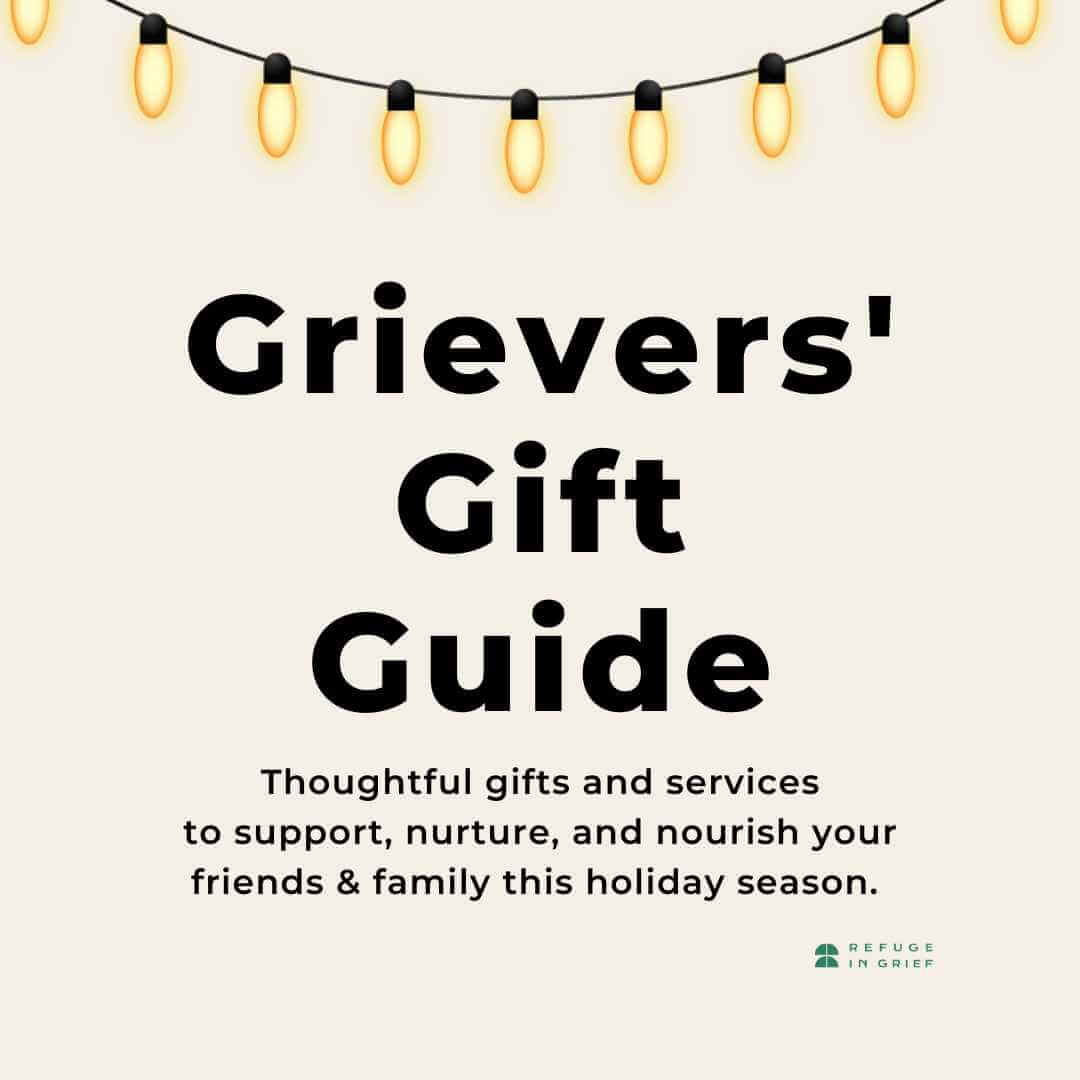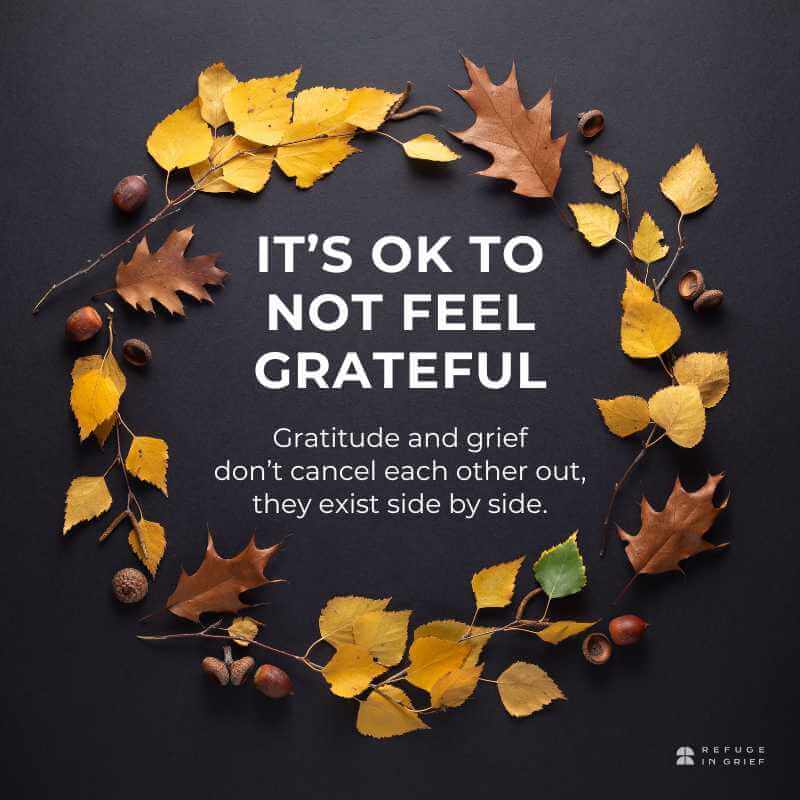How do you handle invitations that overlap with important grief dates?
Have you had friends or family invite you to events taking place on important grief dates – like your person’s birthday or the anniversary of their death? In addition to the dates themselves, the whole week, month, or season around those dates can be really rough for a grieving person.
So how do you handle the invitations themselves? And how do you handle your own uncertainty about whether or not you want to go? This happens to grieving people all year round, but there can be even more pressure from people around those invitations during the holiday season.
People outside the epicenter of a loss might remember birthdays and death dates, but they tend not to consider how even just the time of year around those things can be intense for the grieving person. They don’t live with your loss every day the way you do, so it simply doesn’t register for them. That doesn’t mean it’s OK. It’s just a pretty common, crappy thing.
In response to invitations that overlap with a sensitive time of year, you can start conversations like, “Are you aware that this is death anniversary season?”
Depending on their response, you can come back with (in your own words, of course), “I realize that this doesn’t necessarily impact you, but it has a very big impact for me. And I’m not sure how I’m going to feel during (whatever event you’ve been invited to).”
You can also say something like, “What I’d like to do is see how I’m feeling the morning of the event. And IF I feel like I can attend, I will be there, and I will be happy to be there.”
If your people aren’t supportive of this and continue to pressure you, we go back to our stock phrases:
“I hear that you really want me there, and it feels important to you. I also need to honor where I am and what feels comfortable and doable for me. So I hope you’ll understand that, and let me do what’s best for me on that date.”
Here’s the thing – you don’t have to attend this event. Sure, that might upset some people, but you don’t have to do anything you don’t want to do, and no matter how short-notice you decide you don’t want to do it.
Your priority is to yourself. So you can state your boundary very clearly: “Here’s what I’m willing to do. I understand it’s important for you that we all get together. That might not be something that I can do, and I need you to respect that I understand what I need at this time.”
If they press or argue, you say the same thing. You do not need to come up with a new defense for yourself. This is all more effective if you continue to say the same thing. Because if you keep coming up with a new answer to their pressure, they’re going to keep going, hoping that they’ll eventually wear you down.
You can even say, “I keep being really clear about what I can and can’t do, and you keep coming back to tell me not to do it. Can we talk about that?” <–This is really uncomfortable for the other person.
If you keep responding the exact same way, it gets boring for them. And if they keep doing it and they’re not responding to your stock response, which is a very clear boundary, I would call them on it:
“Here’s what I see happening. You keep telling me I have to be there. I keep telling you I’m going to check in with myself on that morning and see what I can handle. And yet you keep coming at me and trying to convince me. That’s not working for me,” or, “I need you to stop doing that,” or, “Isn’t that interesting that that keeps happening?”
Should you decide you feel like you can attend, you can set things up for yourself in advance so that it’s easier for you to take care of yourself in the situation:
Ahead of the event you tell a few trusted people, “Here’s what I’m planning to do. I feel pretty good this morning. I’m going to give it a go. If it gets overwhelming for me, I’m going to go do X, Y, and Z. ( a few examples) I’m going to go take a walk. I’m going to disappear to the guest room, or I’m going to go home. I’ll touch base with you later.”
If you wake up the morning of the event and decide you want to give it a go, but then you get there and you realize, “Oh my god, no,” Then you leave. You just leave. That’s entirely OK. Take care of yourself first. Once you’re back home and feeling more grounded, you can let people know that you decided it was too much.
The truth is, these are things you can’t really plan for. So instead you plan for, “I don’t know how it’s going to feel, so I will put structures in place so that I can more easily and cleanly care for myself in the moment, no matter what that moment calls for.”
That’s excellent advocacy for yourself.
None of this is easy. But the truth is, what people feel that you need often won’t align with what you actually need. And you know yourself best.
How about you? How do you handle invitations that overlap with important grief dates? When you’ve not wanted to attend or been uncertain about attending an event, how did the people around you respond? The more we talk about this stuff, the more people realize they aren’t alone.
How do you handle invitations that overlap with important grief dates AND your own uncertainty about whether or not you want to go? Here are some handy scripts to help you out. Click To TweetWishing for some company inside your grief? Now, as always, the very best place I know to connect YOU with other grieving folks is inside the Writing Your Grief community. 24 hours a day, 7 days a week, there is always someone there: when you feel invisible inside your grief, these folks see you. Registration is open now! Follow this link to join us. We’ve got room for you.


